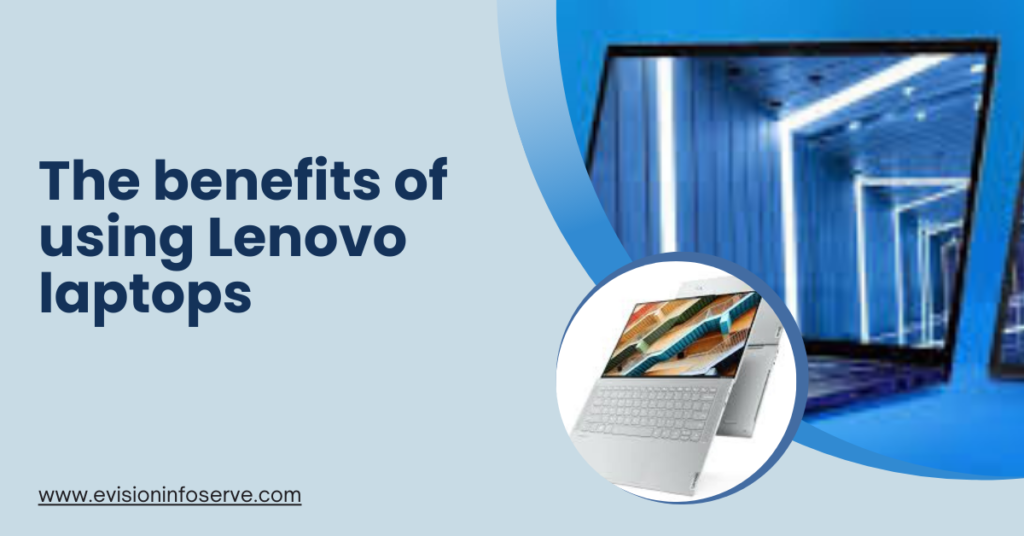Discount up to 35% for first purchase only this month.
Here’s a step-by-step guide on how to write a practical blog post outlining the benefits of using Lenovo laptops specifically for system engineers:

Begin your blog post by introducing the importance of choosing the right laptop for system engineers. Explain that system engineers require powerful and reliable laptops to perform their tasks efficiently.
Research various Lenovo laptop models that are suitable for system engineering tasks. Look for laptops with robust hardware specifications, including powerful processors, ample RAM, and storage options. Consider models that are known for durability and performance.
Create a structured list of benefits that Lenovo laptops offer specifically to system engineers. Some key benefits to cover include:
Include real-world examples and scenarios where using a Lenovo laptop has benefited system engineers. Share testimonials or case studies demonstrating how Lenovo laptops have improved productivity and efficiency in system engineering tasks.
Detail the compatibility of Lenovo laptops with popular system engineering software and tools. Mention specific software packages commonly used in system engineering and explain how Lenovo laptops can seamlessly run these applications.
Discuss practical considerations such as warranty support, customer service, and aftermarket upgrades for Lenovo laptops. System engineers often value these factors when choosing a laptop for professional use.
Incorporate visuals like product images, screenshots of performance benchmarks, or demonstrations of system engineering tasks being performed on Lenovo laptops. Visual content enhances engagement and comprehension.
Offer practical advice on choosing the right Lenovo laptop model based on the specific needs of system engineers. Provide recommendations for different budget ranges and use cases.
Encourage system engineers to explore Lenovo laptops further by providing links to Lenovo’s official website or specific product pages. Invite readers to share their experiences or ask questions in the comments section.
Summarize the key benefits and reasons why Lenovo laptops are ideal for system engineers. End with a compelling conclusion that reinforces the value of choosing Lenovo for professional use.
Review your blog post for accuracy, clarity, and readability. Make sure the content is free of grammatical errors and typos before publishing.
Publish your blog post on your website or preferred platform. Share it across social media channels and relevant online communities frequented by system engineers to maximize exposure.
Lenovo laptops come equipped with some of the most powerful processors on the market, such as Intel’s i5 and i7 series, as well as AMD’s Ryzen series. These processors allow you to work on multiple tasks simultaneously, without any lag or slowdowns.
The Lenovo IdeaPad Slim 3i Chromebook 14 (2023) is the best laptop for students we’ve tested in the cheap category. It’s a great option if you only need a simple device to browse the web and write papers. Its compact design makes it easy to carry around, and its battery lasts about 13 hours of light use.
Discover Why Lenovo Is Popular
Though Lenovo isn’t as recognizable as brands like Apple, Dell, or HP, the buyer benefits from that with more competitive pricing for a computer that is often just as reliable and powerful as its more expensive counterparts. You just may want to consider Lenovo as your next laptop buy.
A Lenovo laptop may typically survive between three and five years with good maintenance, and even longer. It’s crucial to remember, though, that rapid technological breakthroughs and changes in hardware and software might shorten the lifespan of any laptop.
100% Original product that covered warranty by the vendor.
You have the right to return your orders within 30 days.
Your orders are shipped seamlessly between countries
Your payments are secure with our private security network.
Evisioninfoserve is dedicated to providing high-quality refurbished laptops to our customers. We understand that not everyone can afford brand-new laptops, and we believe in the value of extending the lifespan of technology while offering affordable options.
+91 9205888941
WhatsApp us